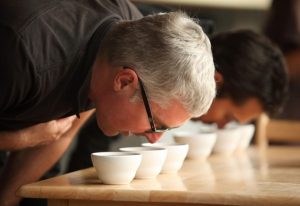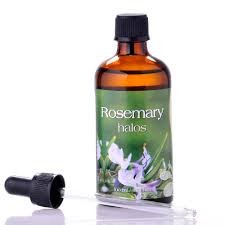There is a strong connection between smell and memory
Have you experienced this – you are out for some work in market or are on a walk and suddenly you smelled something that affected your mood strongly? Well, I am not discussing allergies. I am discussing about aromas or smells here. They have a capacity to trigger some emotion in us, they can evoke a memory, elevate our mood or make us feel nostalgic. This sensation is also known as the “Proust Effect,” referring to the author Marcel Proust who wrote about memory recall as having a strong unconscious connection to certain smells. It seems an area in our brain which implicates emotion memory has immediacy to smells, more closely than any other senses. Lot of research has gone into smells and odors which prove that they are particularly effective as reminders of past experience. They are stronger than other senses, such as sights or sounds.
Aromatherapy which is a form of alternative therapy uses the natural oils extracted from flowers, bark, stems, leaves, roots or other parts of a plant to enhance emotional and physical well-being. The inhaled aroma from these “essential” oils is widely believed to stimulate brain function. Essential oils can also be absorbed through the skin, where they travel through the bloodstream and can promote whole-body healing. This therapy is gaining momentum, it is used for a variety of applications, including pain relief, mood enhancement and increased cognitive function. There are a large number of essential oils available, each with its own healing properties.
Do certain smells and aromas Improve Learning Efficiency?
Yes it does. Boring subjects like History and Geography can be memorized with help of certain smells. It seems smells can be used to recall contexts, dates, time and places in particular, to enhance our memory recall. For example, if in a Baking class you were preparing a cake, perhaps after few years remembering the smell of an essence will enhance your memory of what the cake looked like. Perhaps when you once again will prepare the same cake, a particular smell of an essence could help you easily recall the process of cake making. It is said Rosemary essential oil helps in increasing learning efficiency.
Even music can bring forth memories of past experiences and bring a smile to our faces, so can the smell of a familiar meal cooking from the kitchen. A research has proved that the aromas of particular foods wafting through the house can make the senior citizen’s recall events from their past. Our sense of smell is thought to have the most profound link when it comes to unlocking our memories. Some aromas have the ability to pull our seniors as far back as their childhood.
Scent is the sense closest linked to memory. Studies have shown that people can remember a scent with 65% accuracy after 1 year while visual memory sinks to 50% after only a few months. The smells we experience play a crucial role in how we associate with memories and places. Sometimes, a scent of something instantly takes you back to an old memory; it reminds you of your mother’s cooking or a childhood trip to the riverside, a distinctive scent sinks into your brain and stays there.
Smell has many connections in our life.
Smell can connect with emotions: You will be surprised to know that smell has a strong influence on the emotions we feel in our daily lives. The emotions we feel result the way we relate to places and brands. Visual Merchandising in retail industry covers all the necessity to capture the attention of the customers by all means from the facade of the store to the location of each product inside the store – may it be a department or specialty store, some consultants have expressed that stores are looking to make the shopping environment more welcoming by pumping in pleasurable aromas such as cedar, apple pie, vanilla, and green tea to help set the shopping mood. Customers get drawn to some scents which perks up their mood.
Smell connects with time: Smells can influence our perception of time. A whiff of coffee aroma or the tea aroma gives us the sense of time. Similarly the baby powder aroma might remind you of your own childhood or your children’s childhood. Likewise, pleasing fragrances have been shown to create “dwell-time” in stores, increasing the likelihood of customers making purchases. A sauce, a pickle, a jam or jelly can easily bond the customers with some of their memories.
Smell can comfort the health: In hotels, restaurants, spas and even in hospitals creating a comfortable and relaxing atmosphere for customers is a challenge. Many spas use jasmine or lavender fragrances to calm the customer’s mood. In book shops and music shops we get a typical musky paper fragrance.
Smell can increase productivity: Our senses of smell can even affect our productivity in organizations. Specific smells have been found to increase alertness which in turn results in higher productivity rates. One study found that when lemon oil was diffused throughout a Japanese office building, which helped increase productivity by 54% among data entry operators. Scents can also be used to ward off mid-afternoon brain fog to revive our concentration levels.
The environment around us produces natural aromas. The environments can increase or decrease our stress levels. What you are smelling, seeing, hearing, experiencing at any moment is changes your mood. Nature heals us. Being in nature, or even viewing scenes of nature, reduces anger, fear, and stress and increases pleasant feelings. There is no substitute of aromas produced by trees, flowers, fruits and shrubs.
















































